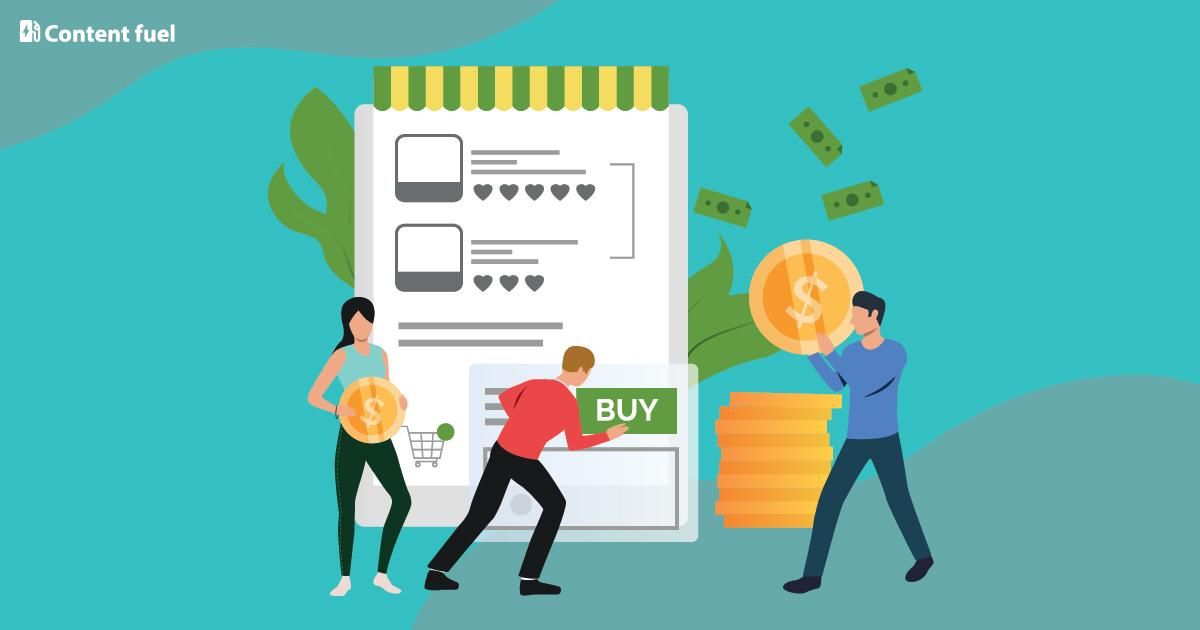01 Mar

Copywriting is a broad field. Even if you have been writing for years, there could be a specific market which you are not able to tap yet. For example, have you ever written for businesses instead of consumers? This is what B2B copywriting is all about. While some fundamentals are the same, there are a few specific things you must consider.
This post will give you an overview of how to do B2B copywriting and some awesome examples that could inspire you on your next project.
What’s in it for the Executives?
As a newbie, you probably think the best way to angle your copywriting is to highlight what a product or service can do for the business. But, if you want to sell, you must write for the key decision-makers or the business executives. Explain to them how it could change their life as the leader.
Let’s be real here. More often than not, we always ask, ‘What’s in it for me?’ It’s a natural response before we purchase anything either for personal consumption or for business use. Use that mindset when forming your copywriting materials. Think like the business owner, as an executive, or even a procurement manager, and lift ideas from there.
Be Logical Rather than Emotional
For B2C copywriting, we use emotional appeal to win the market. For example, if we are selling a smartphone for $1000, you don’t highlight the features – though you still include them. But what you emphasize are the feelings they could get if they buy that expensive gadget. The storyline or focus revolves around saving happy memories with the phone’s impeccable built-in camera. Or perhaps, you tell them how the voice-activated or hands-free feature can make driving safer.
The strategy is quite different for B2B copywriting. If you must know, the sale cycle for B2B is longer and that they are more logical when making a purchase. They consider the overall cost and its impact on their productivity and profit.
Speak Like a Human Not a Machine
One of the common mistakes of new B2B copywriters is that they write to impress corporations or hot shots in different industries. That’s already a given. You write to create an impact. You write with high hopes to close sales.
But the problem is, because of that attempt to impress, your writing tone becomes unnatural. You try to sound smarter and compose a lengthy copy, which shouldn’t be the case.
Similar to B2C copywriting, you have to sound human. After all, your readers from B2Bs aren’t machines. They too are people who enjoy the straightforward approach. You do not win them by being all too-flowery or using highfalutin words. Like in most cases, your B2B copywriting is more effective when it shows sincerity, and if you can highlight the benefits.
Know Their Industry and Language
Here’s an odd rule that works like wonders.
If you are to work on a B2B copywriting, use jargon.
For those who have been doing copywriting stints for B2C, this is a no-no. However, when dealing with businesses, experts say that you must know their language. It gives the impression that you know what you are talking about. And that fosters trust between the company you are writing for and your potential customer.
What does this mean if you are the copywriter? Make sure that you conduct further research before writing. Be in the loop and observe how people in the industry talk.
Remember when companies try to close deals with foreign nationals? More often than not, they will hire a translator to make deeper connections. The same principle applies to this technique.
Go Into Details Only When Necessary
As a rule of thumb, copywriting should be simple, sharp, and short. However, and once again, you can break the rule depending on different factors. For example, if you are writing for technical people, you can provide them with the specific features of your products. Or if your process is entirely different from others, you can highlight that as well.
Know Your Brand’s Voice
As always, use the brand’s voice when writing. Forget about your personal tone, and remember that what you are writing represents the business.
Samples of Good B2B Copywriting
Now that you know the basics of B2B copywriting, let’s give you our top five samples that used various approaches. This should help you come up with your own.
Mailchimp

Who says you have to be rigid when doing B2B copywriting? Take this awesome example from Mailchimp. The tone they use is similar to when you are talking to a friend. And let’s not forget their CTA button, which is different from the usual ‘Click Here’. The unique image blends well too.
While we are talking about copywriting or texts, supplemental images are necessary if you wish to win a business. Consider this as a marketer.
WeTransfer

Let’s admit it. We don’t read the long About Us page in most cases. It’s time-consuming, and we’d rather know the products and services. However, WeTransfer did it so cleverly, you would be able to know the company’s history in just a couple of sentences.
Basecamp

What we absolutely love about Basecamp’s copy is that it’s conversational, easy to read, and has a social proof to back it up. If you must know, business decision-makers always love numbers. Yes, you can write all flowery words that could win you a copywriting award, but without facts, it won’t close sales.
Blockchain

The company Blockchain uses jargon yet explained it in such a way that most people will understand it. You can take this approach if the services you are offering are relatively new in the market.
ZOHO

This is a classic example of talking to key decision-makers. There are no flowery statements, and they directly showcased what the system can do for the company.
As we’ve mentioned, the B2B approach needs to be more logical than appealing to one’s emotions. With thousands of users all over the globe, we can say that ZOHO did a great job.










